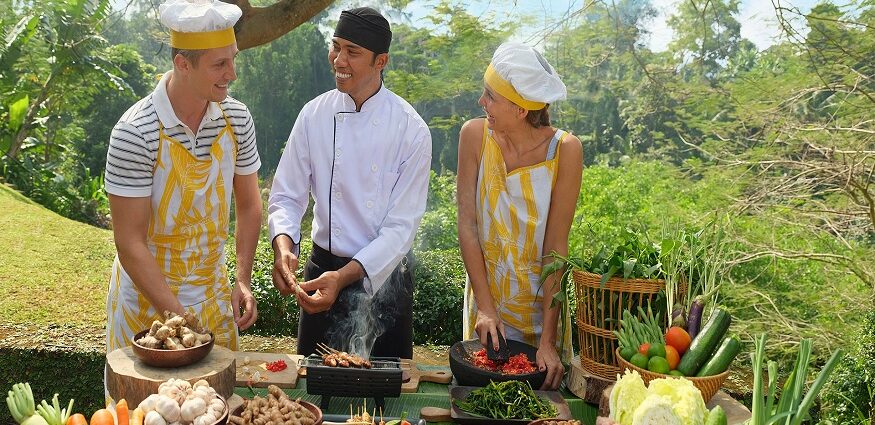The cost of taking a cooking class in Singapore can be costly. Therefore, making an informed decision is essential and ensuring that you make the most of each class once enrolled. In this post, we will discuss how to pick your class, and in a later post, we will discuss how to maximise the benefits you receive from your class.
Check that you really do want to get there.
It goes without saying that having a passing fascination with the material being covered in class is beneficial. You should have a purpose for being in the class, whether it’s learning how to make doughnuts or how to butcher fish. A general interest in cooking and the social elements of attending a class is also acceptable motivations for taking a cooking class, as was the case with some of the students in my vegetarian cooking class.
Having said that, attending a cooking class on a topic that interests you is an excellent way to broaden your horizons, particularly if you have only a passing familiarity with a certain ingredient or kind of cuisine. If you are afraid of doing anything specific, like dealing with yeast or deep frying, taking a cooking class may be quite beneficial since you will likely emerge from the programme with more expertise and a fresh perspective.
Check to see whether the difficulty is appropriate for you.
There is a significant gap between the knowledge and abilities a novice cook needs to have and those that an experienced one would find fascinating and difficult to master. Therefore, be sure that the class is at the proper level for you, particularly if it is hands-on, as you will most likely spend time on your own. This is especially important if the programme is hands-on.
If you are new to the subject matter of the class or even if you are an intermediate student, you shouldn’t skip over the fundamental classes even if they don’t sound as interesting because they are still very much worth your time. However, before you can go on to more advanced programmes in cooking, you will need to be sure you have a solid foundation of skills and information that you know how to navigate and make the most of. Classes on knife skills, mise-en-place, stocks, and other topics are essential, so make sure you enrol in them.
Make sure that the classroom has all it needs to function properly.
It is not necessarily about finding the largest or most fancy location possible because you may attend an excellent cooking lesson in someone’s home kitchen. Having said that, if it is a school that is only devoted to teaching people how to cook, then they ought to have a huge overhead mirror slanted upwards so that even those sitting in the back row can see what is going on. In addition, it is important to have quality tools that have been carefully maintained and sharpened regularly. Many culinary schools either post pictures of their classrooms online or encourage prospective students to stop by for a visit and take a look around before enrolling.

